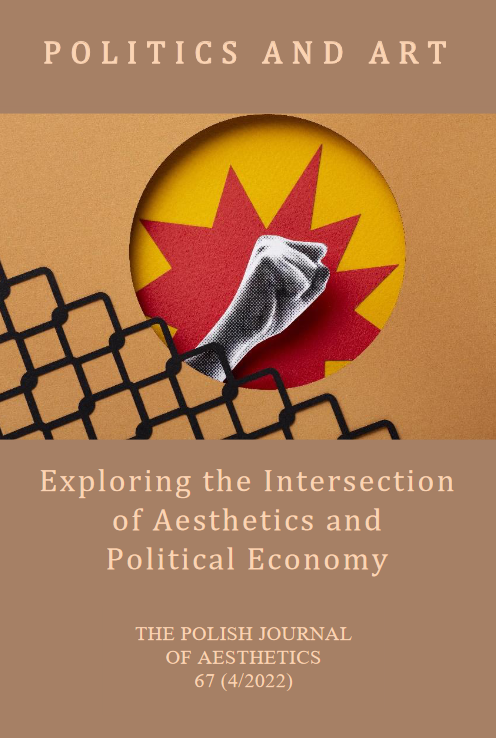 Web Content Display
Web Content Display
 Web Content Display
Web Content Display
 Web Content Display
Web Content Display
email: leszek.sosnowski@uj.edu.pl
 Web Content Display
Web Content Display
CFP: “The Aesthetics of Travel”, 65 (2/2022)
Editors: Carla Milani Damião (Federal University of Goias), Nastassja Pugliese (Federal University of Rio de Janeiro)
This upcoming issue of The Polish Journal of Aestheticscalls for submissions focused on the associations between traveling and aesthetics, both understood broadly. There is a necessity for interdisciplinary dialogue between Aesthetics and different fields of research related to traveling. Aesthetics is the study of perceptions, experiences, and speculative developments. The practice of traveling reaches from the importance of nomadism for forming human culture up to the idea of Bildung (moral, intellectual, cultural, and artistic formation). Narratives about travel may come from Western written and oral tradition, such as Homer’s Odyssey, and film genres such as Westerns, Sci-fi, or Road trip cinema. Various types of travel literature could include logbooks and texts that support learning about living a way that necessarily encompasses alterity. Traveling invokes a type of self-knowledge that is dislodged from a homeland andis connected to ritualistic reunions sustained through an oral tradition, the extraordinary adventures of a people.Travel transmits knowledge about the world for future generations. Through the experience of distance and strangeness, traveling creates an authentic space for cosmological and philosophical investigations, exploration, nostalgia, and personal, collective, scientific, or territorial discoveries,above all. In the category of space, fictional and narrative aspects find imaginary projections and territorial explorations from which knowledge emerges, individuating itself by an investigative perspective and observation. A new personality—a new Self and new Selves—appears from unknown space and time.The essential and precise subject matter for this issue is to deal with the representation of traveling and the imaginary, even if trips are objective and documented. Papers should include studies about the bond between the objective and the subjective, the individual and the collective, united with memory, time, and space.
We invite authors from various research areas to submit articles on the following topics:
- Non-travel ethical implications
- The political aesthetics of migration: assimilation, expatriation, trans-nationality, and the stateless
- Traces of travel: maps, writings, or logbooks (Reisenschriften)
- The aesthetics and journeys of learning, field trips, and education(Bildungsreisen)
- The philosophy of traveling
- Different scales of imagining locality and globality
- Women on the road: movies, diaries, and narratives
- Road trip movies, Westerns, Sci-Fis
- Cities, public spaces, and travel monuments and infrastructure
- The banalization of traveling
- Aesthetics, technics, and the mediatization of traveling
- Aesthetics and the tourism industry: travel, technology, and the market of experiences
- Travel Aesthetics between alterity and segregation
- Images and remote travel: evidence and fiction in forensic architecture
- The expansion and shrinkage of the European economic and geopolitical space: reports of domination, oppression, and liberation
- Forced travel: slave trade ships and anti-colonial struggles
- Journeys in freedom, servitude, and slavery: narratives in contrast
- Traveling and infection: the genesis of biological warfare and what it means today
- Novel Coronavirus journeys
- Tripsto the Brazilian Highland (Planalto Central): from the pioneer explorers Bandeirantes to modernist architecture
- Internal travel, sacred pathways, and pilgrimages centers
- Singing and Beads: internal trips with indigenous people
- The practice of tripping: internal travel and drugs
- Scientific expeditions, collectivism, and its critique
- The aesthetic experience of travel, changes in culture, memory, or personality
Submission deadline: October 31, 2021.
We would like to kindly ask all authors to familiarize themselves with our guidelines, available under “For Authors”. and to double-check the completeness of each article (including an abstract, keywords, a bibliography, and a note on the author) before submission. Only completed papers should be submitted using the submissions page, which can be found here.

